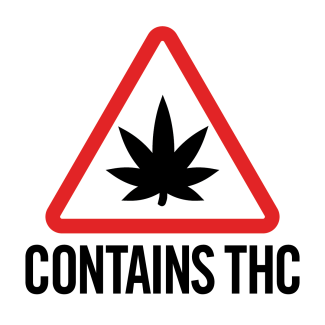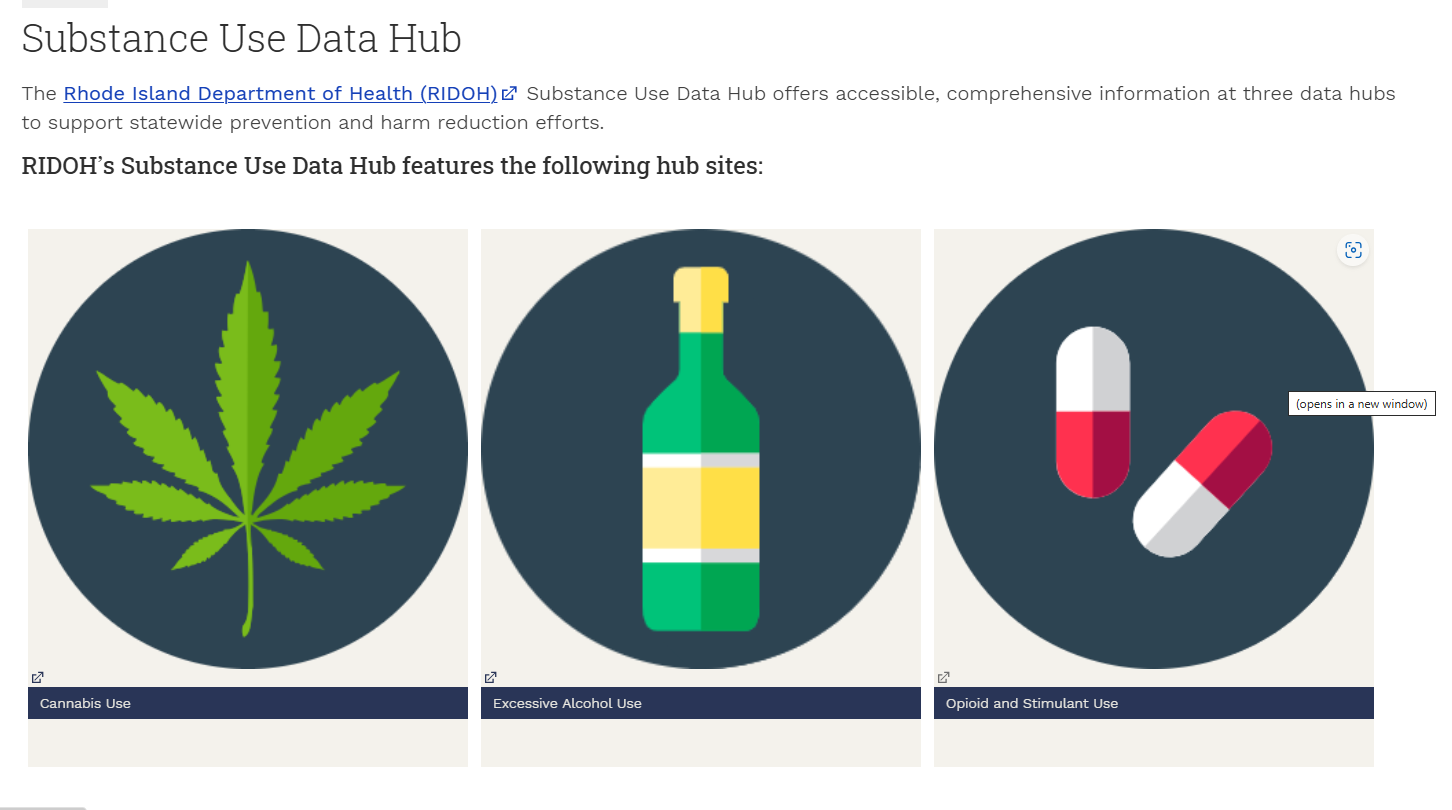What is Cannabis?
Cannabis - also known as marijuana, weed, or pot - comes from the dried flowers, leaves, stems, or seeds of the cannabis plant. It contains hundreds of compounds, including cannabidiol (CBD) and tetrahydrocannabinol (THC). THC is the substance that causes the “high” people can feel when using cannabis. Cannabis use in Rhode Island is allowed for qualified patients under the Edward O. Hawkins and Thomas C. Slater Medical Marijuana Act and for adults aged 21 and older under the Rhode Island Cannabis Act.
Cannabis use can include smoking, vaping, and eating or drinking a food product containing THC and/or CBD. Each method can have a different effect on the body and brain.
Recovery and Treatment Information
Rhode Island offers a variety of treatment and recovery support resources for people experiencing substance use conditions, including cannabis use disorder. Learn more about local options and get connected.

THC versus CBD
The main psychoactive compound in cannabis products is THC. When used, it passes through the bloodstream to the brain and can affect a person’s memory, thinking, concentration, coordination, and time perception.
All legal cannabis products in Rhode Island are required to have the universal THC symbol on the packaging and stamped on each edible serving.
CBD is the second most common active ingredient in cannabis. It does not cause the same effects as THC, but scientists are still learning about how it affects the body and its potential risks. To date, the US Food and Drug Administration has approved only one CBD-derived prescription drug, called Epidiolex.
It is important to note that unregulated CBD products may contain unintended ingredients, such as THC, pesticides, heavy metals, bacteria, or fungi.
What are some health concerns of cannabis?
According to the Centers for Disease Control and Prevention (CDC), there are health risks associated with using cannabis regardless of how it is consumed. Some people may be at a higher risk of health problems from using cannabis. For instance:
- Pregnant and breastfeeding people: The CDC recommends avoiding cannabis because research shows that it can cause health problems in newborns, including lower birth weight and abnormal brain development.
- Adolescents: Youth are at risk because their brains continue developing until age 25. Studies show that those who start using cannabis earlier in life are more likely to get addicted to cannabis and face other health problems.
- Children: The number of youths accidentally exposed to edible cannabis products rose 1,375 percent between 2017 and 2021, according to the journal Pediatrics. Of these, nearly 98 percent occurred in the home.
- People at risk for cardiovascular disease: Smoking cannabis exposes people to many of the same harmful chemicals as tobacco smoke. It can also increase the risk of bronchitis and mucus in the lungs.
Even for people in otherwise good health, cannabis use can have a variety of short-term effects, including:
- Psychosis, or losing touch with reality (risk is highest with regular use of high-potency cannabis)
- Delusions (when taken in high doses)
- Hallucinations (when taken in high doses)
- Poor coordination and slower reaction time
- Impaired driving
- Trouble thinking and problem solving
- Memory and attention problems
- Altered senses (seeing brighter colors, sensitivity to sound)
- Distorted sense of time
- Mood changes
What we do
- Work with State agencies and community partners such as the Rhode Island Department of Behavioral Healthcare, Developmental Disabilities & Hospitals (BHDDH), the Rhode Island Executive Office of Health and Human Services (EOHHS), the Rhode Island Cannabis Control Commission (CCC), and the Rhode Island Regional Coalitions to offer reliable information and resources about cannabis.
- Monitor and share the impact of cannabis use on Rhode Islanders through the Cannabis Use Data Hub. This site is managed by RIDOH’s Substance Use Epidemiology Program and features adult and youth survey information, as well as data from patients who sought medical attention for cannabis-related incidents.
- Offer educational resources on topics related to cannabis, such as medical marijuana and substance-exposed newborns.
- Conduct research to guide statewide activities that prevent harm from cannabis use.
RIDOH is guided by the CDC’s Cannabis Strategic Plan (CSP), which has a special focus on health disparities and the following populations of interest:
- Adolescents and young adults
- Infants and young children
- Pregnant and postpartum people
- Older adults
- Racial and ethnic minorities
- People in poor health or with chronic conditions
- Workers



